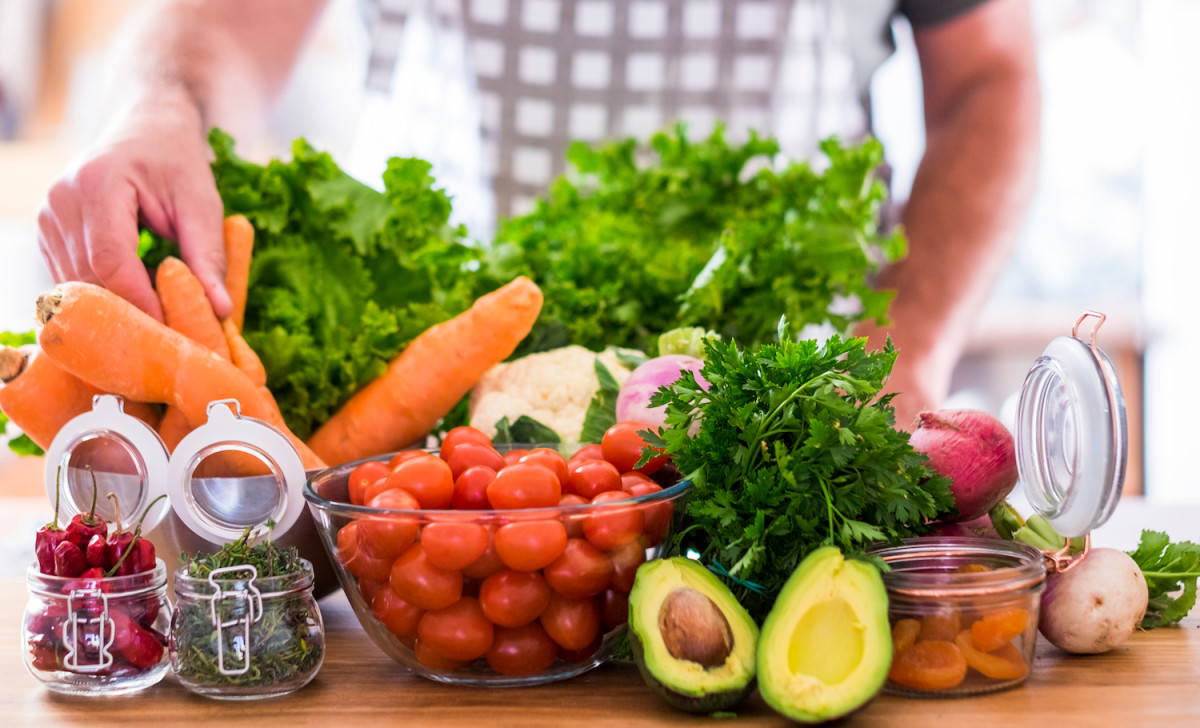While maintaining a high-functioning immune system is always important, nowadays, it really seems to take on an added level of importance. A global pandemic is a scary event to deal with, and having a strong immune system––along with socially distancing and wearing a mask––is your best line of defense.
Of course, knowing exactly how to give your immune system the boost it needs is a little more complicated than putting back a couple glasses of OJ––but that’s a start. While staying active and fit is extremely helpful, you can still strengthen your immunity without breaking a sweat––or even opening your eyes, for that matter. Begin with incorporating these three simple changes into your life to give your immune system the boost it needs to keep you healthy and safe, during flu season and beyond.
Get Plenty of Sleep
Don’t be this guy. Shutterstock
16 hours should be more than enough time to complete everything you need to do in a single day. Those other eight hours? Your body needs those for rest and recovery. Not only does getting a full eight hours of sleep help you feel clear and focused for the next day, but it also gives your immune system time to reboot and recharge. Countless studies have correlated sleep and improved immune function.
In one such study, the scientists were able to focus on T-cells––which contribute to the body’s immune response by identifying and directly killing infected host cells, as well as activating other immune cells in the process. The scientists found that getting sleep was directly linked with improved T-cell function.
“Our findings show that sleep has the potential to enhance the efficiency of T cell responses, which is especially relevant in light of the high prevalence of sleep disorders and conditions characterized by impaired sleep, such as depression, chronic stress, aging, and shift work,” said study co-author Luciana Besedovsky.
While everyone is a little different, most scientists suggest getting between seven to nine hours of sleep every night. But don’t overdo it either, as oversleeping has been proven to do more harm than good.
Eat a Colorful Diet
 Opt for a colorful diet. Shutterstock
Opt for a colorful diet. Shutterstock
If you find yourself waiting in line at the fast food drive-thru on a regular basis, you should probably reconsider your dietary choices. It may be a cliché, but it’s accurate: “You are what you eat”. So if you are filling your gut with a double cheeseburger, large fries and chocolate shake, the only thing you are satisfying is your taste buds.
While you can always splurge for the occasional burger, pizza or hot wings––you need to keep it in moderation. Give your immune system the tools it needs to fight infection by ensuring your diet includes plenty of fruits and vegetables––specifically immune-boosting foods like citrus, red bell peppers, broccoli, garlic, ginger and leafy greens.
As a simple rule of thumb, eat a colorful diet. Vibrantly colored fruits and vegetables are generally the richest in vitamins, minerals, fiber and antioxidants.
Take Vitamins to Help Your Immune System
 Vitamins and supplements are a good way to avoid deficiencies. Shutterstock
Vitamins and supplements are a good way to avoid deficiencies. Shutterstock
While its always best to get your nutrients and vitamins from the food you eat, taking vitamins and supplements is certainly not a bad idea. While there is no magic pill or vitamin that’s proven to totally protect you from getting sick, they help in areas where your diet may be lacking.
For example, micronutrient deficiencies can have a negative impact on your immune response. And with our busy lives, you’re probably not paying too much attention to which micronutrients you might be skimping out on. To cover your bases, start by taking a daily multivitamin that will contain trace amounts of most micronutrients.
Additionally, three immune-boosting vitamins worth taking are vitamin C, vitamin D and Zinc. While everyone knows about the benefits of vitamin C in fighting infection, it’s also important to recognize the role vitamin D and Zinc play.
While we normally get our Vitamin D from the sun, that’s harder to do during winter. And with studies showing that low levels of vitamin D have been associated with a greater risk of developing respiratory conditions, a vitamin D supplement is a good idea. Zinc is another great immune fighter and studies have shown that increased concentrations of zinc can inhibit the replication of viruses.
Lastly, remember that taking a super dose of any one vitamin will not give you “super-immunity.” Instead, focus on avoiding nutrient deficiencies in any one area, eating healthy and getting plenty of Zs.
For access to exclusive gear videos, celebrity interviews, and more, subscribe on YouTube!
source https://betterweightloss.info/3-easy-ways-to-boost-your-immune-system/

No comments:
Post a Comment